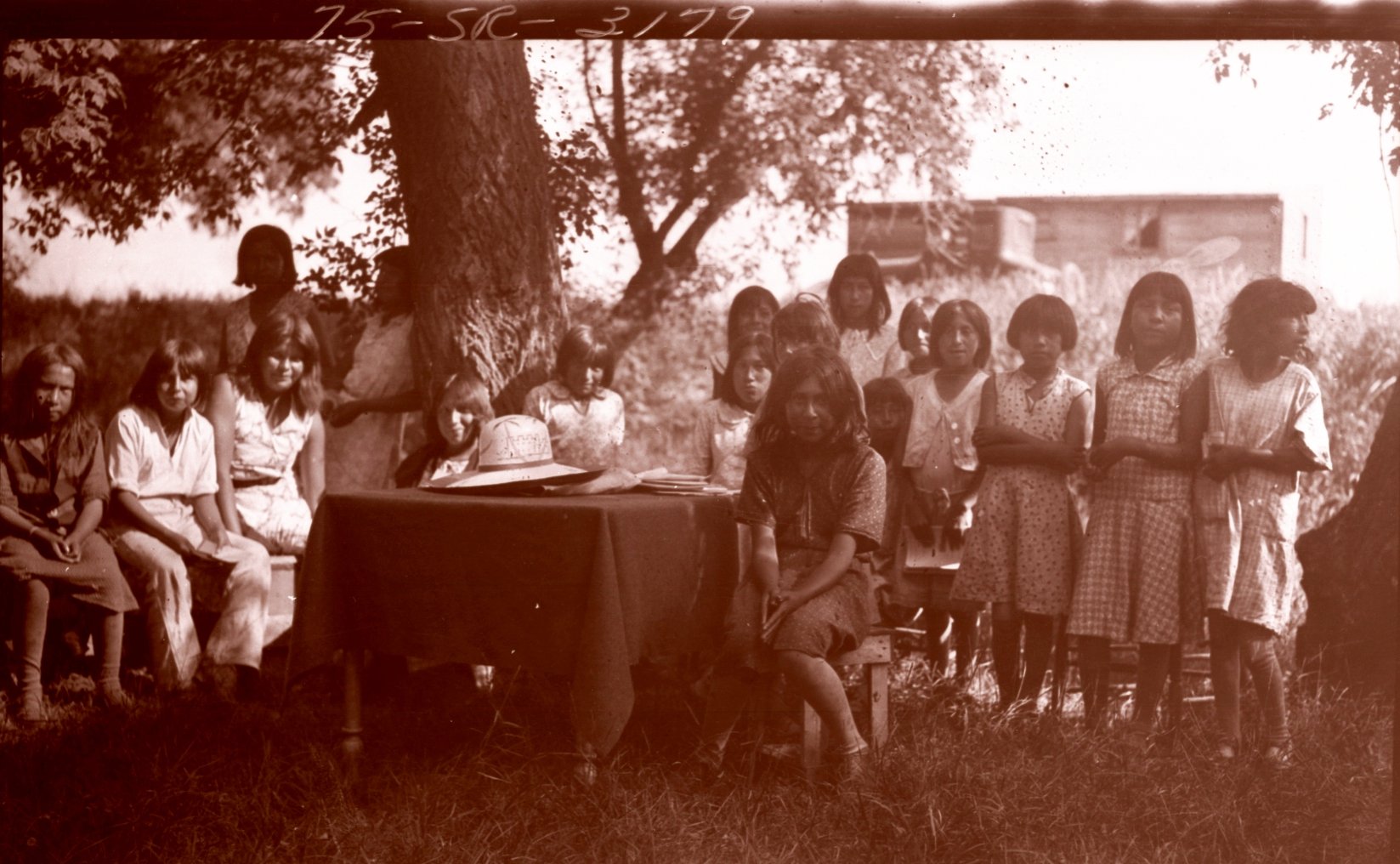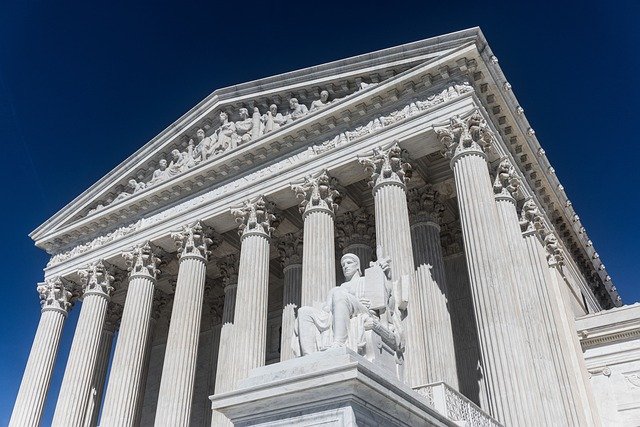November is both National Native American Heritage Month and National Adoption Month. Tomorrow, November 9, the U.S. Supreme Court is scheduled to hear a case that has implications related to both, Brackeen v. Haaland, which concerns the Indian Child Welfare Act of 1978 (ICWA), 25 U.S.C. §§ 1901-1963.
The ICWA governs the removal, placement, and return of Native American children in child welfare proceedings for both foster care and adoption. At issue on appeal is the constitutionality of the act’s child placement preferences, as set forth in 25 U.S.C. § 1915.
“Brackeen marks only the third time the Supreme Court has granted review in a case under the Indian Child Welfare Act. It is being closely watched because not only is the constitutionality of ICWA at issue but also the continued viability of fundamental principles of federal Indian law. In keeping with recent decisions involving tribal sovereignty and the rights of tribal members, the Court is likely to be closely divided,” stated Barbara A. Atwood, Mary Anne Richey Professor of Law Emerita & Co-Director, Family and Juvenile Law Certificate Program, The University of Arizona James E. Rogers College of Law.
Live oral arguments for the U.S. Supreme Court start at 10:00 a.m. ET and are broadcast here: https://www.supremecourt.gov/oral_arguments/live.aspx. In addition, “On the afternoon of each argument, the Court posts transcripts of that day’s arguments. On the Friday of each argument week, the Court also makes the audio of the week’s arguments available.”
Additionally, the Indigenous Law and Policy Center will host a post-oral argument discussion of Brackeen over Zoom this Wednesday, November 9, at 6:00 p.m. ET. See the flyer above and to the right, and register by clicking here.
This blog sets forth below the ICWA’s child placement preferences and a brief procedural history of the case.
The ICWA’s Child Placement Preferences
The “placement of Indian children” preferences in child welfare cases, set forth in 25 U.S.C. § 1915, are:
(a) Adoptive placements; preferences
In any adoptive placement of an Indian child under State law, a preference shall be given, in the absence of good cause to the contrary, to a placement with (1) a member of the child's extended family; (2) other members of the Indian child's tribe; or (3) other Indian families.
(b) Foster care or preadoptive placements; criteria; preferences
Any child accepted for foster care or preadoptive placement shall be placed in the least restrictive setting which most approximates a family and in which his special needs, if any, may be met. The child shall also be placed within reasonable proximity to his or her home, taking into account any special needs of the child. In any foster care or preadoptive placement, a preference shall be given, in the absence of good cause to the contrary, to a placement with—
(i) a member of the Indian child's extended family;
(ii) a foster home licensed, approved, or specified by the Indian child's tribe;
(iii) an Indian foster home licensed or approved by an authorized non-Indian licensing authority; or
(iv) an institution for children approved by an Indian tribe or operated by an Indian organization which has a program suitable to meet the Indian child's needs.
(c) Tribal resolution for different order of preference; personal preference considered; anonymity in application of preferences
In the case of a placement under subsection (a) or (b) of this section, if the Indian child's tribe shall establish a different order of preference by resolution, the agency or court effecting the placement shall follow such order so long as the placement is the least restrictive setting appropriate to the particular needs of the child, as provided in subsection (b) of this section. Where appropriate, the preference of the Indian child or parent shall be considered: Provided, That where a consenting parent evidences a desire for anonymity, the court or agency shall give weight to such desire in applying the preferences.
(d) Social and cultural standards applicable
The standards to be applied in meeting the preference requirements of this section shall be the prevailing social and cultural standards of the Indian community in which the parent or extended family resides or with which the parent or extended family members maintain social and cultural ties.
(e) Record of placement; availability
A record of each such placement, under State law, of an Indian child shall be maintained by the State in which the placement was made, evidencing the efforts to comply with the order of preference specified in this section. Such record shall be made available at any time upon the request of the Secretary or the Indian child's tribe.
Procedural History of the Case
Turtle Talk, the official blog of the Indigenous Law and Policy Center, has collections of court documents from the district court, 5th Circuit, and the U.S. Supreme Court. The proceedings are summarized below.
Foster and adoptive parents and the of states of Texas, Louisiana, and Indiana sued the United States and several of its entities, claiming that the certain provisions of the ICWA and its accompanying regulations, as well as related portions of the Social Security Act, were unconstitutional under various U.S. Constitution clauses and amendments. Brackeen v. Zinke, 338 F. Supp. 3d 514, 520 (N.D. Tex. 2018).
The federal District Court for the Northern District of Texas held portions of the ICWA unconstitutional as they violated equal protection, the non-delegation doctrine, and the Tenth Amendment. Brackeen v. Zinke, 338 F. Supp. 3d at 536, 538, & 541. The defendants appealed to the 5th Circuit, and a panel of judges affirmed in part and reversed in part the district court’s opinion. Brackeen v. Bernhardt, 937 F.3d 406, 416 (5th Cir. 2019).
After a rehearing en banc, the 5th Circuit held in part that:
“To summarize, ICWA is a law of the United States made in pursuance of the Congress's constitutional authority. Further, ICWA does not violate the anticommandeering doctrine because it does not directly command state legislatures or executive officials to enact or administer a federal program. Rather, any burden it places on state actors is incidental and falls evenhandedly on private parties participating in the same regulated activity. Under the Supremacy Clause, then, ICWA is the supreme law of the land, and judges in every state shall be bound thereby. ICWA and the Final Rule therefore preempt conflicting state law, and the district court erred by concluding otherwise.” Brackeen v. Haaland, 994 F.3d 249, 331-332 (5th Cir. 2021).
“In sum, § 1903(4)’s definition of an “Indian child” and § 1915(a)(3)’s Indian family preference can be rationally linked to the trust relationship between the tribes and the federal government, as well as to furthering tribal sovereignty and self-government. They therefore do not violate constitutional equal protection principles, and the district court erred by concluding otherwise.” Brackeen v. Haaland, 994 F.3d at 345.
Plaintiffs appealed. The two questions presented on appeal to the U.S. Supreme Court relate to whether the child placement preferences in the Indian Child Welfare Act (1) discriminate on the basis of race and (2) commandeer “state courts and state agencies to carry out a federal child-placement program.”





